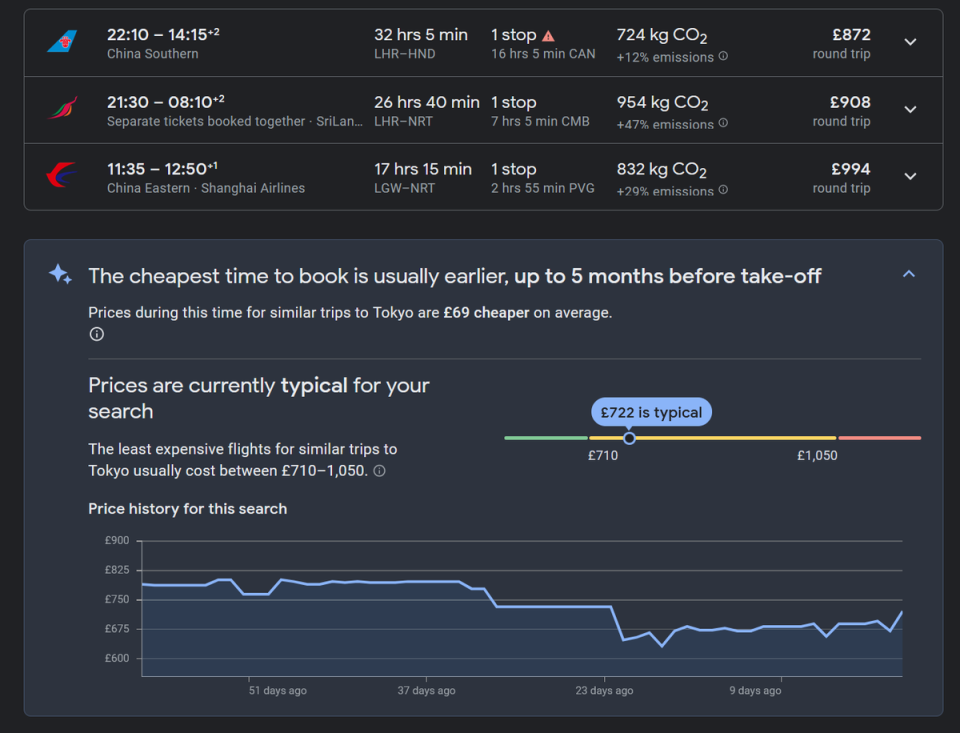Google’s latest update could save you big money on flights

Even for experienced travellers, booking plane tickets can be a lottery. Prices fluctuate, and knowing when to lock in the best price is something of an art form.
But with the latest update to its Flights search engine, Google is aiming to make it more of a science. The firm has amassed enough historical data on certain routes that it has now begun advising consumers as to whether the price is likely to drop between the day you’re browsing and take-off time.
“On Google Flights, you can already see whether current prices for your search are low, typical or high compared to past averages for the same route,” wrote James Byers, Group Product Manager of Google Flights in a blog post explaining the update. “But the age-old question remains: Is it better to book now or wait for lower prices to come along?”
Google’s answer, on routes with “reliable trend data” is to tell you how it’s been in the past. Past prices aren’t a guarantee of future trends, of course — they’re related to what other humans are doing, which will be affected by real-world events — but if you feel like taking a risk, you’ll soon be better informed.
While Google says the rollout is happening this week, The Standard was able to see it in action in a test search already. A search for a hypothetical flight to Tokyo in October revealed that this reporter had already missed the optimal point, which typically arrives five months before takeoff for this journey and would usually save £69 on current prices.

“These insights could tell you that the cheapest time to book similar trips is usually two months before departure, and you’re currently in that sweet spot,” Byers continued. “Or you might learn that prices have usually dropped closer to takeoff, so you decide to wait before booking. Either way, you can make that decision with a greater sense of confidence.”
As well as highlighting this new addition, Byers also took the opportunity to remind readers of another tool in the arsenal for cheap flight hunters: price tracking. Simply select a specific set of dates or be more flexible with times, and Google will automatically drop you a notification if prices on your chosen route drop significantly.
It’s a useful set of features, but it’s worth noting that historical trends only offer predictions and not guarantees. Indeed, Byers notes at the end of the post that while 2022’s insights revealed Christmas trips were at their cheapest when booked 22 days in advance, it’s now up to 71 days which is quite a drastic change.
All the same, two big recommendations remain the same: “Taking a layover or avoiding weekend departures are among the best ways to save on your next flight booking,” Byers says.


